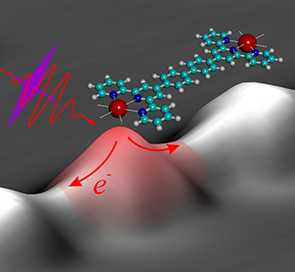Femtosecond atomic-scale dynamics on a surface
The advent of scanning tunnelling microscopy more than 30 years ago has allowed for real-space imaging of single atoms and molecules on a surface. Normally, this technique is able to study the equilibrium properties of a system, and does not allow to access real-time ultrafast dynamics occurring at femtosecond timescales. Indeed, the intrinsic time resolution of scanning tunnelling microscopy is dictated by the speed of conventional electronics, which is at best on the order of hundreds of picoseconds. Many processes on surfaces however, such as charge dynamics or vibrations of molecules, can unfold at much faster timescales, below 1 picosecond.
Recent advances in scanning tunnelling microscopy combined with techniques of nonlinear optics, ultrafast photonics and pump-probe spectroscopy have allowed to access ultrafast dynamics of processes on a surface, with real-time sub-picosecond resolution, and, at the same time, real-space single atom resolution. The approach relies on coupling quasi-single-cycle, ultrashort electromagnetic waveforms (e.g., a terahertz, infrared or optical pulse) to the junction of the scanning tunnelling microscope.
The project here consists of investigating structural, charge and magnetization dynamics in photo-active molecular assemblies on surfaces, with sub-picosecond time resolution, and at the scale of a single atom.
Applicants for a PhD position should hold an Honours or Master’s degree, and have a strong background in experimental physics.
Please contact us if you have any questions.

